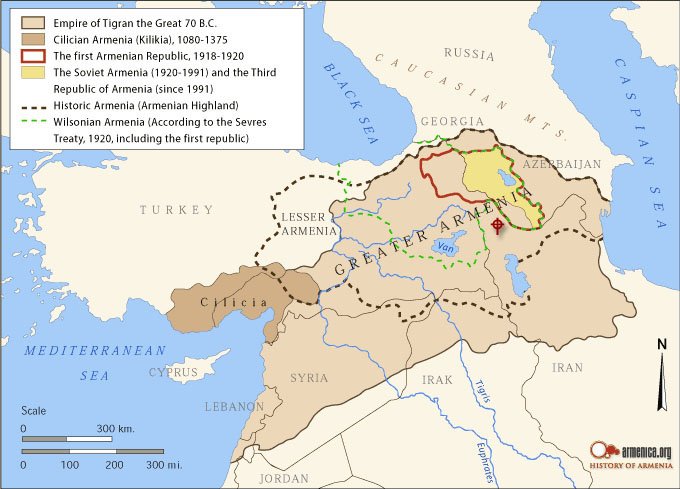Dreaming with a Broken Heart
July 26, 2012By: Christine Feghali
I recently read an article written by a peer in Israel about the possibility of the return of Western Armenia’s lands. In the article, he brings up points that are not discussed often enough and, to be honest, I never gave the subjects much thought until after I read the article. I highly recommend reading his article (http://www.haytoug.org/3717/the-lost-homeland-indeed) and seeing what he has to say. His article has inspired me to discuss certain topics with people I’ve met with over the past week and this blog is a result of those conversations.
Imagine for a moment that by some miracle, the Turkish government decided to stop denying the Armenian Genocide and to give back Western Armenia. We would all celebrate. We would feel like the time we spent protesting at the Turkish Consulate every year was worthwhile and that it made a difference. We would hug our fellow Armenians and proclaim victory. But then what? What steps would we take to ensure a prosperous future for our country?
We often forget that there are currently nearly 14 million Kurds living in Western Armenia. What becomes of them if we suddenly regain control of this land? In a recent conversation at a birthday party (yes, this is the kind of stuff I talk about at birthday parties), someone regarded that they could just remain on the lands. We have to keep in mind, however, that the Kurds, much like the Armenians, struggle to have an independent and free Kurdistan. They want to be free of occupation and oppression, and it is safe to assume that if we have Western Armenia, our fight would be against the Kurds rather than against the Turks.
As the article states we can either give parts of our land to the Kurds while retaining the strategic and symbolic regions or we can stifle the Kurds and have them live under occupation. Of the two, the more humane solution is clear, yet I assume that it would be very difficult for any Armenian to give up a single inch of the land that we’ve fought so hard to get back. I know that I would not want to see our lands go as quickly as they came. So what do we do?
Another problem we Armenians would face when regaining our lands is determining how we’re going to populate the country and make it successful both economically and socially. Of the eight ANCA Western Region interns, I know of at least two who absolutely want to move back to Armenia some day. They want to spend their lives there and raise their families in the Motherland. The problem is, they are the exception. Who of the nearly seven million Armenians living in the Diaspora would make the move? Many people here are comfortable with their lives and, as one person at the birthday party put it, why go to a place with no jobs when we can be happy and successful here.
Many of us dream of moving back to Armenia, of waking up with a view of Mayr Hayastan or Mount Ararat from our balconies. But how many of us are willing to drop our lives here and move? I know that personally, I would need my family to move with me. Family is the most important thing to me, and I would not be able to leave them behind. For others, although family may be important, they can find it in themselves to fulfill their dream with or without their loved ones.
One other issue we need to consider is the ignorance of some Armenians residing in the United States. Over the weekend, I met several Armenians who didn’t know what Artsakh is. I don’t mean to paint a dreary picture, but we have to face the sad reality and admit that this was not exceptional. There are many Armenians who don’t know these things about our culture and many that don’t even care to know. These people are not going to be moving to Armenia if we regain our lands. They are apathetic to our cause and lack knowledge of their own culture. Unfortunately, we have lost too many Armenians through assimilation to fully repopulate Armenia if the lands are returned.
I don’t have a practical solution to any of these problems. Apo Sahagian, the author of the article that inspired me, offers possible solutions that he thinks may work, but as he says, “…before banging on the table and ordering the realignment of borders, there is a bit of reflection that is necessary before stomping our feet and roaring for the restoration of Van, Mush, and Ararat under Armenian rule—no matter how right and reasonable.”
What do you think? Would you be willing to take your expertise to Armenia and help the country prosper? What solution is there that would satisfy both the Armenians and the Kurds? I’m very interested in hearing what all you readers have to say. By continually having these conversations, we spread awareness of the issues and can start coming up with plans and solutions so we are prepared when the time comes to fulfill our dreams and regain our lost lands.
